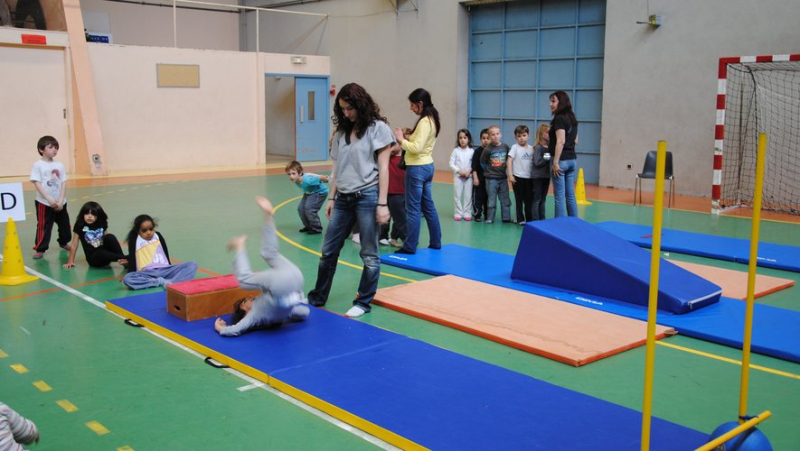“In France, there is a historic tension between school and the world of sport,” analyzes Patrick Mignon

30 minutes d'activité physique quotidienne en primaire : une directive très diversement appliquée. Midi Libre
Former head of the sociology laboratory at Insep, Patrick Mignon analyzes the individualistic evolution of sporting practices in France. and the difficulties in developing sport in schools.
French sports practice seems to be on the rise again but more towards individual practices. Does this surprise you ?
No because this was already the trend that we had observed since the 1980s in surveys that we carried out when I was at Insep. We observe an increase in practices provided that voluntary physical activities are extended to all, which includes going to work by bike or by walking, for example. We now favor a chosen sociability over a club sociability which appears a little confining due to constraints. In traditional sports, there is a competitive dimension which can appear selective and will be a hindrance. This is a long and heavy trend.
Is this the mirror of our society ?
We are indeed seeing an individualization of lifestyles, including in the leisure area. Everything that concerns fitness, weight training, gentle gymnastics will be quite engaging because it is more easily adaptable. At a certain time there was a development of sports associations because there was a unity of place between housing and work in industrial or agricultural towns and that # 39;s association was representative of the place. From the moment work and living become stretched, particularly in metropolises, you have a real time use crisis.
Is it more difficult today to join a club for a young person ?
If you take football or rugby, it is certainly more demanding today because the club also lives off its possibility of being a recruitment pool for larger clubs. This is all a game changer. We are no longer here for the honor of the village.
The 30 minutes of daily physical activity in primary school is going in the right direction ?
In our case it remains very proactive with always, behind these problems: who will take care of it ? How it will be integrated into the programs ? this supposes redefining the educational framework and what it will offer. 30 minutes, why not if it’s structured around a varied offering. For some villages, children's daily physical activity will be limited to a 30-minute walk to catch the bus… It's almost a caricature but it's a reality. it raises the question of school and its links with the sports association environment. The body issue at school remains a struggle for us unlike some of our European neighbors.
Why ?
In Scandinavian countries or Germany for example, sports culture is really part of the culture in general. In France, the urbanization of the 60s and 70s disrupted our ways of life. The French school of Jules Ferry developed above all at a time when France was in the process of revenge for the war of 70. The English model posed sport as an educational element awakening. At home, we will operate in the mode of military gymnastics until the 1950s. With a goal of moral rearmament behind it. The sporting and educational worlds will remain separate worlds. We have known all this since the 1980s and it comes to the fore in every political crisis on education, civics and sports. It's quite hard to come back to this because it raises the question of changing the rhythms of the relationship between school and the outside world. In our investigations, we always have this tension between school and the world of sport.
Are we missing a turning point with the Olympics, with somewhat late injunctions ?
It's a little late in terms of official positions. Budgetary pressures also meant that good intentions remained behind in departments like Seine-Saint-Denis where we were ambitious. it seems more like communication.
The games themselves will still have an impact ?
The federations are betting a lot on this. For sports like rowing, which are less publicized, this is important. We often see increases in membership at the moment but over time. it depends on how people will be received in the clubs, on the space given to those who only want leisure activities. Clubs are no longer suited to sports practice which is based on the privilege granted to sociability and pleasure. In this sense, the legacy of the Olympic Games will be what we make of them.




